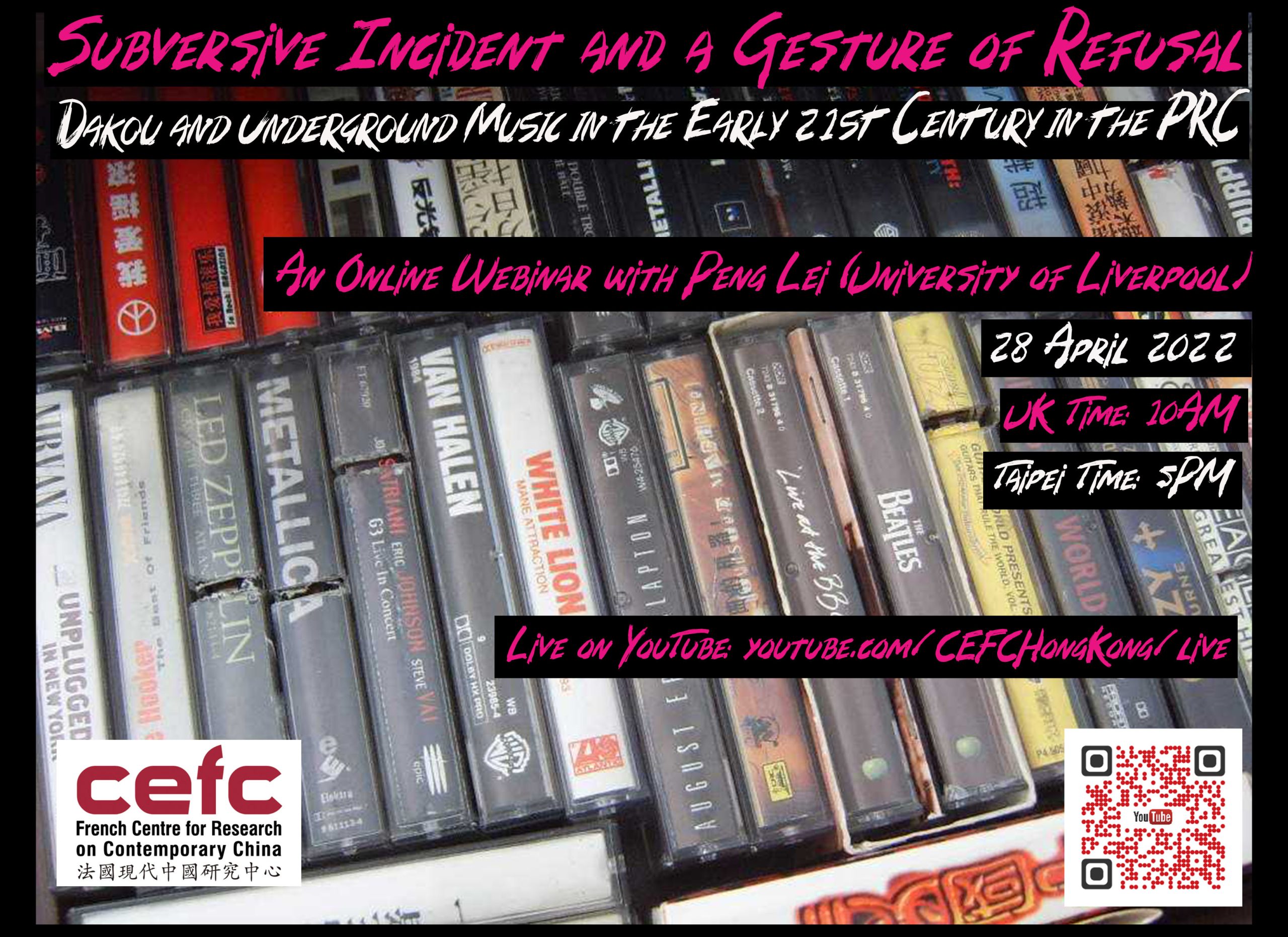Subversive Incident and a Gesture of Refusal:
Dakou and Underground Music in the Early 21st Century in the PRC
An online webinar with Peng Lei (University of Liverpool)
Moderation: Nathanel Amar (CEFC Taipei)
28 April 2022, 5PM (Taipei Time), 10 AM (UK Time)

Abstract:
What are the “dakou (打口) CDs and tapes”, which flooded the Chinese music market in the 1990s, and what the underground music scene in the People’s Republic of China (PRC) looked like? What about the so-called “dakou generation”? Or, has there even been/is there still a subculture or underground music scene at all in this country which is under multiple pressures, from a highly censored and orthodox authority, the erosion of hyper-capitalism, to some so-called thousand-year of family/traditional/collective social habitus, represented by high expectations functioning as social norms against individual tentative of grasping for freedom and autonomy?
Up to now, there are still few works or discussions exploring the “dakou” phenomena and the transitory underground scene in urban areas of the PRC in the early 21th century. It’s true that it would be difficult to investigate the practices of the “dakou generation” and underground music scenes in China due to its marginalized position and the political sensitivity of the PRC, but in the meantime, those familiar with Chinese rock music history could easily summarize a list of magazines, online forums and various iconic venues in major Chinese cities related to Chinese Rock and underground music in the beginning of the current century. During at least the first decade of the 21th century, there has been an active underground market centered around the audio and visual cultural products from the “outside world” (including the general ‘Western world’, ‘Hong Kong and Taiwan’). This market was labeled dakou (referring to “cut-out” records imported from the West and sold on the Chinese black markets), a term which reflected the nature of the market, but also used as a symbolic meaning to describe the collective identity of a group of Chinese youth.
The cultural products “imported” to China by incident from the “outside world” have consequently or accidentally curated a transitory “Chinese subculture scene”, together with a group of Chinese youth who have been influenced by those phenomena and identified themselves as the “dakou generation”: they formed a collective ideal, or a gesture of refusal that has a certain subversive value to borrow the terms of Dick Hebdige. Though the “dakou culture” and underground music magazine/online forums have almost vanished in today’s China, it’s important to take an in-depth look at this social and cultural phenomenon. We might be able to highlight or rediscover some collective attitude that were fundamentally critical, compared to the illusionary cultural diversity in China today under the shiny surface of the “China dream” narrative. This discussion is also essential because it reveals the mechanism of power and hegemony in today’s world.
Lei Peng (彭蕾) obtained her PhD. in Transcultural Studies about Chinese rock music and modern social transformation in 2014 in France. She is currently a Lecturer in Chinese Studies at University of Liverpool in UK. Her research interests are broadly focused on popular/alternative music culture in China and the concept of “modernity”; the relationship between subculture/youth culture and the social transformation of Modern China. She is also interested in studies about the Mind and consciousness, the formation of self-perception as well as the quest for transcendence and spirituality in the cultural sphere of greater China.

